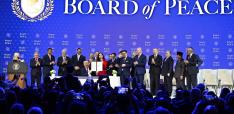Escalation Without Evidence: The Dangerous Politics of Cross-Border Terrorism Accusations

Marzia Raza argues that the two countries' posturing contributes to worsening law and order internally as well as regionally. Yet, India stands to lose more than Pakistan.
In April 2025, militants killed 26 civilians in a terrorist attack near the town of Pahalgam in Jammu and Kashmir, delivering a serious blow to the Modi-led BJP government’s narrative that normalcy had returned to the region. India swiftly blamed Pakistan for the attack and launched airstrikes across the border, targeting what it described as “terrorist infrastructure.” The question is, what formed the basis for this claim?
It is an urgent question given that subsequent Indian investigations into the Pahalgam attack have failed to uncover concrete evidence of Pakistani involvement. However, the limited conflict between the two countries led to four intense days of fighting, leaving 70 people dead. The crisis resulted in the loss of several Indian fighter jets and exposed serious vulnerabilities in Pakistan’s air defence. A ceasefire was eventually declared following intervention by U.S. President Donald Trump.
In recent years, accusations of cross-border terrorism have frequently sparked military escalation between India and Pakistan. These claims, often made prematurely, tend to obscure domestic factors driving insurgent activity. Both India and Pakistan benefit politically from externalizing blame. It allows their governments to deflect from internal security failures, ethnic grievances, local autonomy struggles, and most importantly, declines in democracy. The persistent overuse of such claims destabilizes the region. Both India and Pakistan are nuclear-armed countries and had come close to a nuclear escalation as recently as 2019.
The state of democracy in India and Pakistan
The Bertelsmann Transformation Index describes India as a “defective democracy” and Pakistan as a “hard-line autocracy.” India, in particular, comes increasingly close to the threshold of autocracy. Between 2022 and 2024, key indicators show stagnation or decline under Modi’s Hindu-nationalist government, which has been in power since 2014. Measures of democratic performance have not improved since 2022 and, in several areas, have worsened, including free and fair elections (falling from 8 to 7 points), effective power to govern (8 to 7), civil rights (6 to 5), and freedom of expression (5 to 4). The overall trend remains downward. Subnational democratic variations further complicate this picture.
While the Indian state enjoys general legitimacy, state authority is challenged in regions like Jammu and Kashmir, parts of central India, and the Northeast. The Indian government often responds to dissent in these areas through laws granting special powers to the armed forces. Furthermore, civilian actors linked to the Rashtriya Swayamsewak Sangh (RSS) and the ruling BJP have become influential veto players under Modi, and work to keep dissidents in check. The BJP government has also sought to influence the Indian Army through selective appointments and undermined constitutional checks and balances. Institutions like the Election Commission of India face allegations of politicization and vote rigging to favor BJP, while the independence of the Supreme Court has eroded. Media accountability is weak, with many journalists and outlets echoing government narratives. This deterioration of democratic oversight enables irresponsible state behavior.
In Pakistan, the military remains the dominant force. As recently as 2022, it ousted an elected government. The current administration is propped up by the military, with the prime minister regularly consulting military leadership on internal security and foreign policy. Pakistan’s score on the 2024 BTI indicator measuring civilians’ effective power to govern is a dismal 3. Civilian political elites often operate with impunity, and corruption is rampant. In insurgency-affected regions, the military dominates governance, subjecting civilians to extrajudicial killings, torture, and enforced disappearances. Military tribunals frequently try civilians, while family members of the disappeared struggle to find recourse in courts or parliament. Ethnic minorities in Balochistan and Khyber Pakhtunkhwa face systemic discrimination, and dissidents are often detained under repressive laws. Rather than seeking dialogue with aggrieved communities, the Pakistani state, led by the military, relies on coercion and repression.
Credibility of cross-border terror allegations
In recent years, following insurgent attacks, both India and Pakistan have tended to accuse each other of cross-border terrorism, often to divert attention from impartial investigations and to foster a rally-around-the-flag sentiment at home.
Consider the most recent Pahalgam attack in the part of Kashmir under Indian control. India’s National Investigation Agency (NIA), tasked with probing cross-border terrorism, has yet to identify the attackers. The Resistance Front, a group affiliated with Pakistan-based Lashkar-e-Taiba (LeT), a UN-designated terrorist group, initially claimed responsibility but later retracted, alleging that its account had been hacked by Indian authorities. On 22 June 2025, the NIA announced the arrest of two individuals accused of harboring the attackers. These suspects claimed the perpetrators were LeT members, prompting widespread media speculation about Pakistani involvement. However, the NIA soon clarified that its investigation remained inconclusive. The Indian government later claimed that the attackers had been killed, vaguely stating they were “foreigners,” without offering further evidence or clarity.
While Pakistan’s involvement cannot be ruled out, indigenous resistance to Indian rule, driven by repression and human rights abuses, has long fueled militancy in Kashmir. Framing such violence as solely externally sponsored serves to delegitimize local aspirations for autonomy. Autonomy struggles are also less amenable to resolution through force; indeed, the Modi government’s 2019 decision to revoke Kashmir’s special autonomous status sparked widespread protests and deepened resentment toward Indian rule in the region.
Even in cases where evidence links attacks to Pakistan, local factors remain deeply entangled. The 2019 Pulwama bombing exemplifies this. Following the attack, the NIA charged 19 individuals with criminal responsibility to abet the attack. While these individuals had received some support from Pakistan-based terror groups, their main abettors were Over Ground Workers (OGWs) in Kashmir who had organized intelligence, safe houses, and logistical aid necessary for the attack.
Resistance to Indian rule in Kashmir continues to be a major driver of militancy. By framing insurgent violence as cross-border terrorism, the Indian government often sidesteps legitimate local grievances and justifies military action, which further destabilizes the region.
Pakistan has similarly blamed external actors, particularly India, for domestic insurgent violence but has generally avoided initiating military escalation. A notable example is the 11 March 2025 attack on the Jaffar Express train in Balochistan, which killed 26 and injured 40, mostly army and paramilitary personnel and government officials. In retaliation, Pakistani forces killed 33 attackers involved in the train attack and hijacking. The Balochistan Liberation Army (BLA) claimed responsibility, releasing a video detailing the planning of the attack and citing grievances over state repression, resource extraction, and lack of autonomy. Despite this, the Pakistani military initially blamed Indian intelligence agencies, then shifted blame to Afghanistan. Four facilitators of the Jaffar Express attack were arrested, but no further details were disclosed. Fabricated reports of an Indian spy’s arrest circulated but were never substantiated.
Prospects for regional stability in South Asia
India’s increasingly assertive military posture under Modi, while Pakistan’s military-dominated political system, continue to contribute to worsening law and order internally as well as regionally. In both countries, the main power centres lack accountability in their narratives surrounding external involvement in insurgent attacks. Their responses appear geared toward domestic political gain and strategic posturing than objective investigation or sustainable peace. However, India stands to lose more than Pakistan.
The Pakistani military, already perceived as an insurgent establishment resistant to conventional deterrence, incurs relatively little political cost for its alleged involvement in cross-border terrorism. Pakistan’s undemocratic system means that citizens cannot vote the military or its allies out of office. Pakistan also does not have a very positive perception internationally. In comparison, India is often understood to have enormous “soft power”. Therefore, India has more at stake. While Prime Minister Modi garners political capital domestically through assertive military posturing toward Pakistan, these gains are contingent on the perception of strength and success. India is still a democracy, and elected governments remain subject to accountability despite systemic issues and manipulations. Failed strikes, military setbacks, or the absence of credible evidence to support military escalation significantly undermine the BJP government’s credibility, especially amid growing criticism that such bravado has, in fact, made India less secure.
Marzia Raza is a doctoral researcher in Political Science at Heidelberg University with over five years of on-site and remote working experience in inter-governmental, research, non-profit, and publishing organizations based in Pakistan, Germany, and the United States.
Photo by Diana ✨


